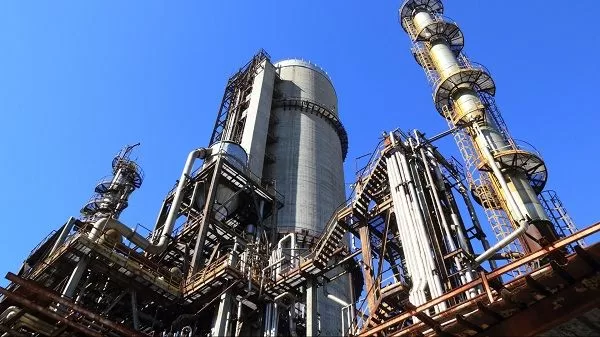Construction of Africa’s largest gas-to-methanol plant in Nigeria is a transformative project aimed to cut CO2 emissions by a great extent by using the flared natural gas as a chemical used in solvents, paints, plastics and car parts.
Project overview
Architect: The project is being led by Blackrose, a key developer in Africa’s industrial projects.
Constructor: Blackrose is spearheading the construction in collaboration with Africa Finance Corporation (AFC) and the International Finance Corporation (IFC), which provide financial backing.
Start date: Construction began in 2024.
Completion date: The completion date has not been specified, but it is anticipated to meet production milestones in phases.
Cost: Financial details have not been fully disclosed, but the involvement of Africa finance corporation(AFC) and international finance corporation(IFC) indicates substantial investment into this high-scale industrial project.
Location: The plant is situated in Akwa Ibom, Nigeria, a region with abundant natural gas resources.
Significance
The construction of this super structure is expected to create over 2500 jobs and over 18, 000 in the long run. These objectives form unique strategies for the plant; for instance, decreasing gas flaring and generating methanol that serves industries such as pharmaceutical, plastics, automotive among others.

Over 95 per cent of Nigeria’s 200 cubic feet of natural gas reserves which is the largest on the African continent, one third of Africa’s total resources remain untapped and offer an huge potential for the development of Nigeria’s natural resource beneficiation and therefore, improving the country’s climate change vulnerability.
The burning of gas has remained a major risk to the lives of people in the region right from the time oil was discovered because it produces chemicals that are known to be a cause of respiratory diseases among other diseases.
“This revolutionary project is turning a massive loss to the face of Nigerians into a leading positive by turning this country’s gas resources to a distinct opportunity to create a New Nigeria as a contender in low carbon economy manufacturing and energy innovations,” AFCA President and CEO Samaila Zubairu said.
“This particular partnership with Blackrose and IFC clearly reflects our commitment to Africa’s realistic shift to net zero while stressing on industrialisation, employment generation, socio-economic progress through production of methanol which is an essential industrial input,” Zubairu noted
Project phases
The project will be in two phases of 1. 0 MW installed capacity each. In the first phase, low-carbon methanol, an industrial chemical that is used in the creation of hundreds of products ranging from solvents for the pharmaceutical sector, paint, plastics, automobile components, and construction materials among others will be produced. This is also a lower emissions alternative fuel suitable for some hard to abate sectors like shipping and industrial boilers, for use in cooking stoves and in fuel cell solutions among others.
The second part of the project will seek to diversify methanol production into ammonia which is one of the key raw materials in the production of fertilisers. Methanol is manufactured from synthetic gas mainly from coal and natural gas. Disposing of natural gas through flaring results in the emission of a considerable amount of carbon dioxide; however, the new plant will adopt efficient production methods with a lower net carbon intensity than traditional methanol synthesis techniques while simultaneously converting the gas that would otherwise be wasted and flared. Also, there are plans for carbon capture and offset methodology, and the utilization of external hydrogen to even further reduce the carbon footprint targets.

Leave a Reply